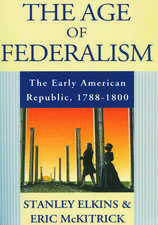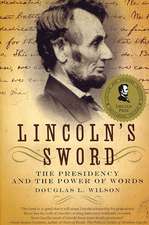That Ever Loyal Island – Staten Island and the American Revolution
Autor Phillip Papasen Limba Engleză Paperback – 28 feb 2009
Papas traces Staten Island's political sympathies not to strong ties with Britain, but instead to local conditions that favored the status quo instead of revolutionary change. With a thriving agricultural economy, stable political structure, and strong allegiance to the Anglican Church, on the eve of war it was in Staten Island's self-interest to throw its support behind the British, in order to maintain its favorable economic, social, and political climate.
Over the course of the conflict, continual occupation and attack by invading armies deeply eroded Staten Island's natural and other resources, and these pressures, combined with general war weariness, created fissures among the residents of "that ever loyal island," with Loyalist neighbors fighting against Patriot neighbors in a civil war. Papas's thoughtful study reminds us that the Revolution was both a civil war and a war for independence--a duality that is best viewed from a local perspective.
| Toate formatele și edițiile | Preț | Express |
|---|---|---|
| Paperback (1) | 201.01 lei 43-57 zile | |
| MI – New York University – 28 feb 2009 | 201.01 lei 43-57 zile | |
| Hardback (1) | 522.62 lei 43-57 zile | |
| Wiley – 30 apr 2007 | 522.62 lei 43-57 zile |
Preț: 201.01 lei
Nou
Puncte Express: 302
Preț estimativ în valută:
38.46€ • 40.26$ • 32.01£
38.46€ • 40.26$ • 32.01£
Carte tipărită la comandă
Livrare economică 31 martie-14 aprilie
Preluare comenzi: 021 569.72.76
Specificații
ISBN-13: 9780814767665
ISBN-10: 0814767664
Pagini: 186
Ilustrații: 7 illustrations
Dimensiuni: 153 x 228 x 14 mm
Greutate: 0.28 kg
Editura: MI – New York University
ISBN-10: 0814767664
Pagini: 186
Ilustrații: 7 illustrations
Dimensiuni: 153 x 228 x 14 mm
Greutate: 0.28 kg
Editura: MI – New York University
Notă biografică
Phillip Papas is Associate Professor of History and Chairperson of the Economics, Government, and History Department at Union County College in Cranford, New Jersey.
Descriere
Traces Staten Island's political sympathies in the American Revolution to local conditions that favored the status quo instead of revolutionary change.
Recenzii
"This is an admirable history--thoroughly researched, clearly written, and persuasively argued. It adds significantly to what we have known about the identity of Loyalists and the intensity of the hostility that they faced during the Revolutionary War in the middle colonies."
—The Journal of Military History "A beautifully written, richly descriptive, and thoroughly-researched account of the importance of Staten Island in the American Revolution. This is an important book, demonstrating that a close examination and analysis of local politics, economics, and social structure can hold the key to understanding national history."
Carol Berkin, author of Revolutionary Mothers"Is not only a micro-history, it provides lessons in the winning—and keeping—the hearts and minds of a local civilian population. —On PointAn excellent book--succinct yet deeply researched, well written and filled with telling bits of evidence worked smoothly into an interpretive narrative. An insightful, important study.
Robert Calhoon, author of The Loyalists in Revolutionary America, 1760-1781
—The Journal of Military History "A beautifully written, richly descriptive, and thoroughly-researched account of the importance of Staten Island in the American Revolution. This is an important book, demonstrating that a close examination and analysis of local politics, economics, and social structure can hold the key to understanding national history."
Carol Berkin, author of Revolutionary Mothers"Is not only a micro-history, it provides lessons in the winning—and keeping—the hearts and minds of a local civilian population. —On PointAn excellent book--succinct yet deeply researched, well written and filled with telling bits of evidence worked smoothly into an interpretive narrative. An insightful, important study.
Robert Calhoon, author of The Loyalists in Revolutionary America, 1760-1781













